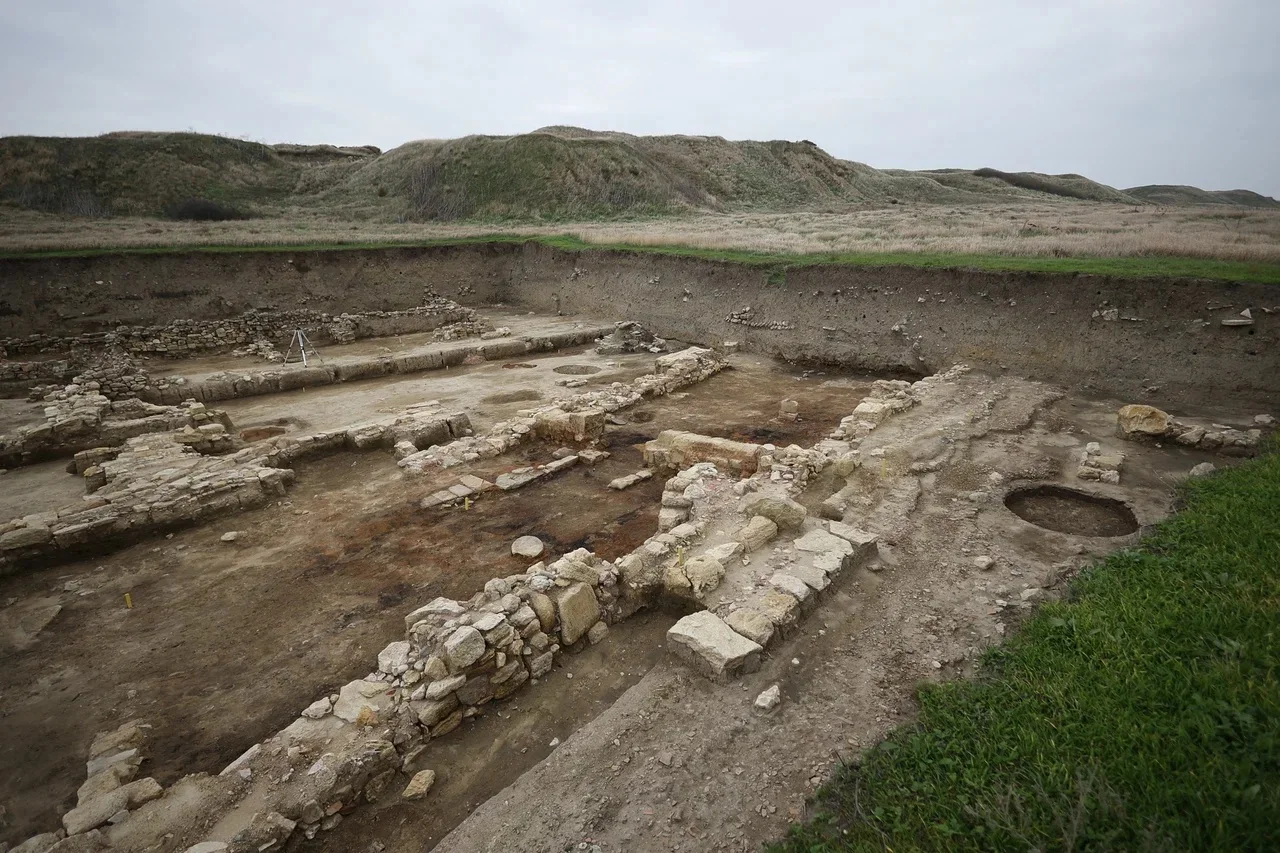Archaeologists excavating at Phanagoria have uncovered an extensive Jewish quarter following the 2023 discovery of an ancient synagogue.
Phanagoria was an Ancient Greek city, founded on the Taman peninsula around 543 BC by Teian colonists. By the 5th century BC, the city emerged into a major trading centre due to the strategic position along trading routes with the Scythians and Sindi.
Recent excavations, led by the Phanagoria Archaeological Expedition and supported by Oleg Deripaska’s Volnoe Delo Foundation, have uncovered an extensive Jewish quarter that includes a winery, gardens, public buildings, residential housing, and an intricate water system.
This follows on from the 2023 discovery of an ancient synagogue from the 1st century AD, including marble menorahs, liturgy tables, bas-reliefs, and intricately designed columns.
According to the archaeologists, the Jewish community in Phanagoria was one of the largest in the Mediterranean region, as evidenced by numerous tombstones bearing Jewish symbols.
Some of the tombstones depict a seven-branched candlestick (menorah), a horn (shofar) and a palm branch. A unique find by the expedition is an amphora used by wandering Jewish merchants that has a Hebrew inscription on its seal, translating to “God : Justice”.
Several Jewish manumissions dating back to the 1st and 2nd centuries AD were also discovered in the Jewish quarter. These documents granted freedom to slaves on the condition that they continue serving at the synagogue.
“The Jewish community at Phanagoria adhered to all the laws and traditions of the Jewish people, while also respecting local customs and striving to create comfortable lives for everyone,” said Menachem Mendel Lazar, Chief Rabbi of Krasnodar and the Krasnodar Territory. “This reflects the wisdom of our sacred Talmud: ‘When you come to a city, do as the locals do.’”
Header Image Credit : The Volnoe Delo Foundation
Sources : The Volnoe Delo Foundation





